
The aim of the project is to expand a trickle-bed bioreactor (ORBIT demo) for biological methanation with archaea to include an electrolyzer, gas processing and gas storage, including the necessary peripherals. A PEM electrolyzer will be specially adapted and extensively tested for this purpose. New glass-based packing materials are being developed, manufactured and investigated for use in the bioreactor. Parallel to the investigations in ORBIT-Demo, a twin is being built on a 5 L scale for further investigations. The overall ORBIT-Demo plant is operated with various bio- or waste gases from industrial processes as CO2 sources. Methanogenic cultures suitable for the different gases and achieving high conversion rates will be identified. Finally, the plant will be integrated and operated as a field test at the wastewater treatment plant in Pfaffenhofen a. d. Ilm.
Potential locations for PtG plants with biological methanisation in Germany are identified and evaluated using various quality criteria. Based on the results of ORBIT-Twin and ORBIT-Demo, an upscale of the plant (ORBIT-Industry) is planned and designed for one of the identified industrial sectors.
The project is a direct continuation of the BMWK-funded project “ORBIT” (“Optimisation of a trickle bed bioreactor for the dynamic microbial biosynthesis of methane with archaea in power-to-gas plants”). The system integration and cost reduction of power-to-gas plants as well as the use of biogenic waste materials (waste gases) as educt gases for methanation are the overarching goals of the interdisciplinary consortium.
The phasing out of fossil fuels and raw materials has long been a done deal throughout Europe. Germany has set itself the goal of decarbonizing the country by 2050. This includes increasing energy efficiency in all sectors and expanding renewable energies which primarily means adding wind and solar power plants. This means that renewable electricity becomes primary energy which in contrast to fossil primary energy is of a fluctuating nature. Due to these fluctuations, both temporary and local balancing between energy generation and consumption is necessary.
Power-to-gas (PtG) technology can solve this problem. By converting electricity into hydrogen and then methane, the energy can be easily stored for long periods of time. Local balancing can be done by using the existing gas infrastructure in Germany. Accordingly, PtG can be used for long-term storage and utilize already existing infrastructure even in a future decarbonized energy system. In addition to current regulatory issues, there are also other obstacles that currently stand in the way of rolling out the technology. Many stakeholders do not know if the integration of a PtG plant is technically possible and reasonable within their operations which presents an enormous hurdle for the implementation of such a project. In the field of biological methanation, especially with the use of trickle bed reactors, there are very few projects or plants that already located in the industrial environment. Accordingly, there are also few companies with experience in this field.
As part of the ORBIT II project experts in the field of methanation gathered at the University Regensburg from October 5th to 6th, 2023 for the interdisciplinary workshop “Advances in biological methanation: Microbes as game changers for a sustainable future “.
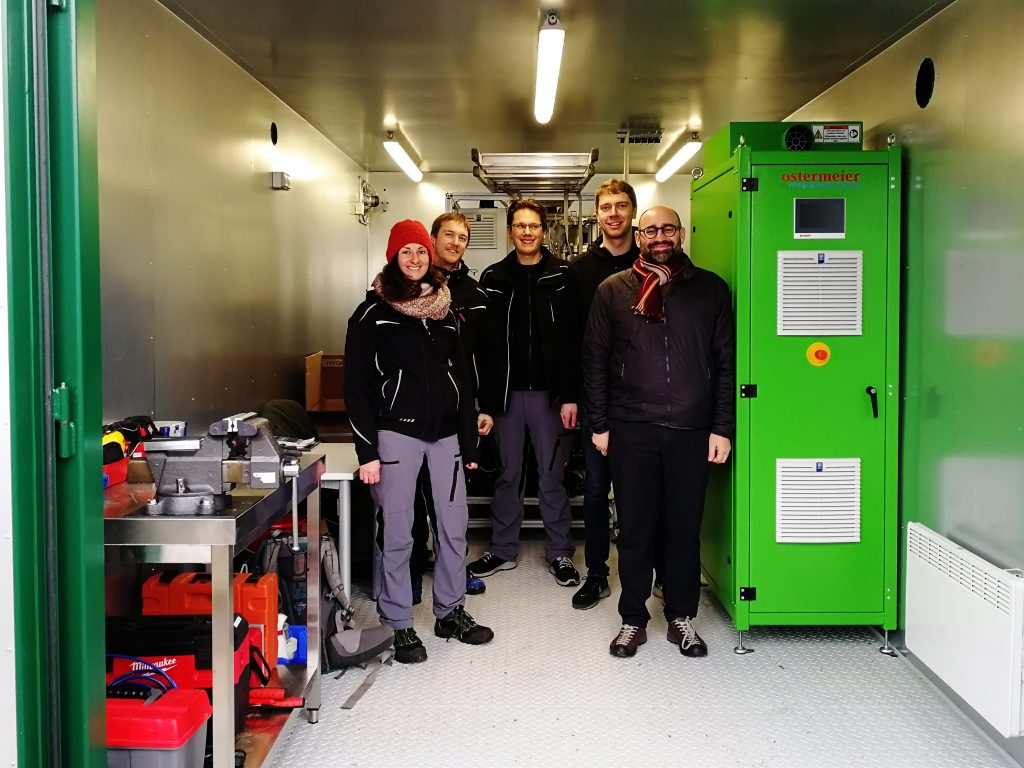
On January 10th 2023 the adapted PEM electrolysis of Ostermeier H2ydrogen Solutions GmbH was transported to the OTH Regensburg and integrated into the test container.
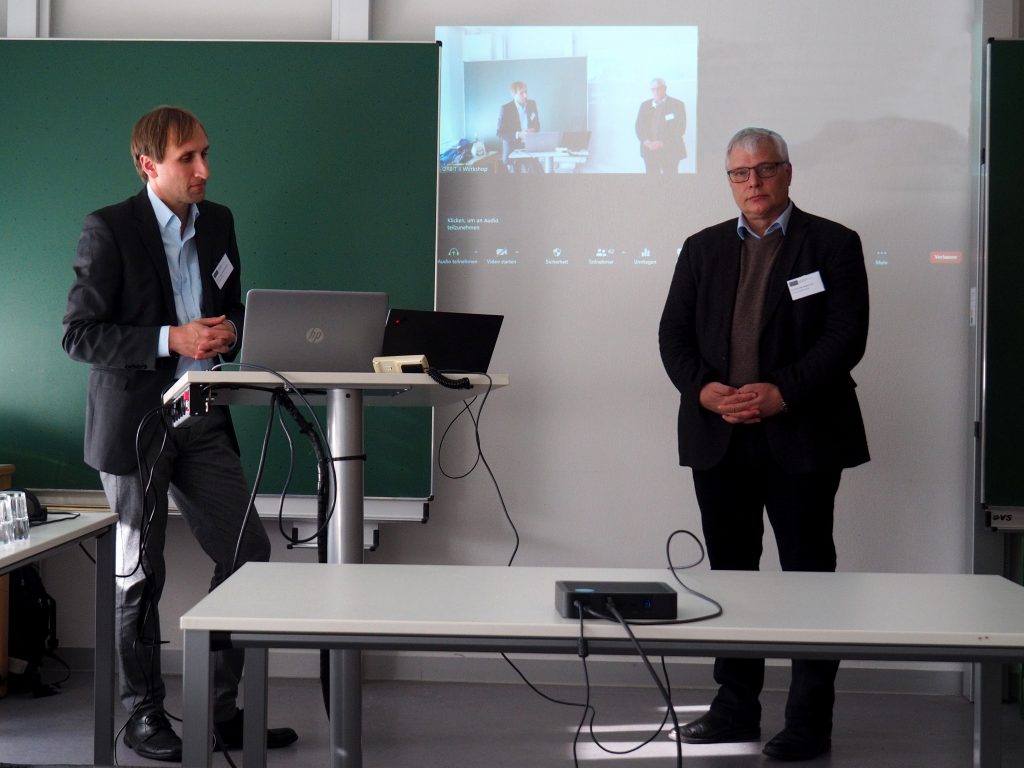
On November 21st 2022, the first of three workshops within the ORBIT II project was held at OTH Regensburg under the title “Renewable Gas – The Forgotten Energy Carrier”. At the peak, more than 70 people gathered information on the topic of power-to-gas during 10 exciting presentations.
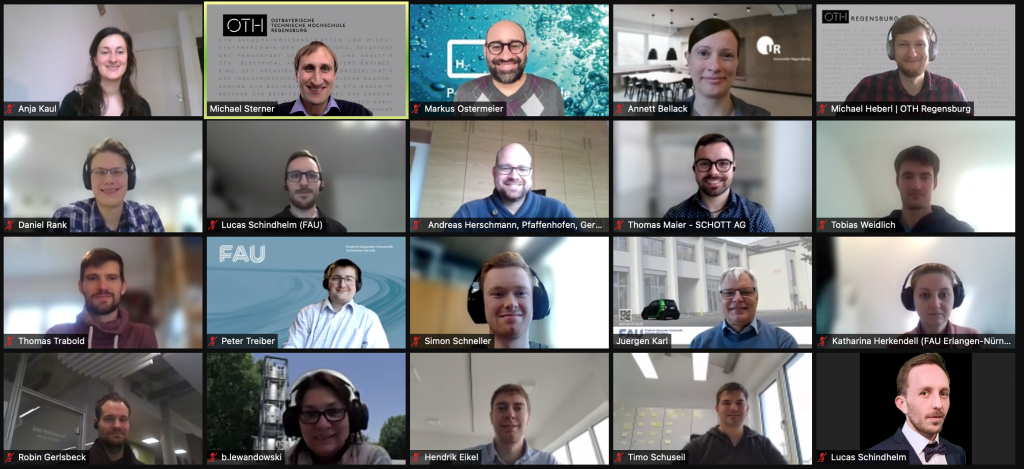
Within the framework of ORBIT II, ten partners are working on the development and the industrial use of a power-to-gas plant and thus on the future of the German hydrogen economy. The German Federal Ministry of Economics and Climate Protection (BMWK) is funding the project with 1.8 million euros over the course of 3 years.
After the successful field test in Ibbenbühren and a final relocation of the plant to Regensburg, the ORBIT project comes to an end on December 31st 2020.
The methanation plant from ORBIT is officially commissioned in Ibbenbüren as a supplement to the power-to-gas plant operated by Westenergie since 2015. The Federal Minister of Education and Research Anja Karliczek and Andreas Feicht, State Secretary at the Federal Ministry for Economic Affairs and Energy, traveled to the event.
We are pleased to be part of the Federal Ministry for Economic Affairs and Energy's (BMWi) 2020 Energy Research report.
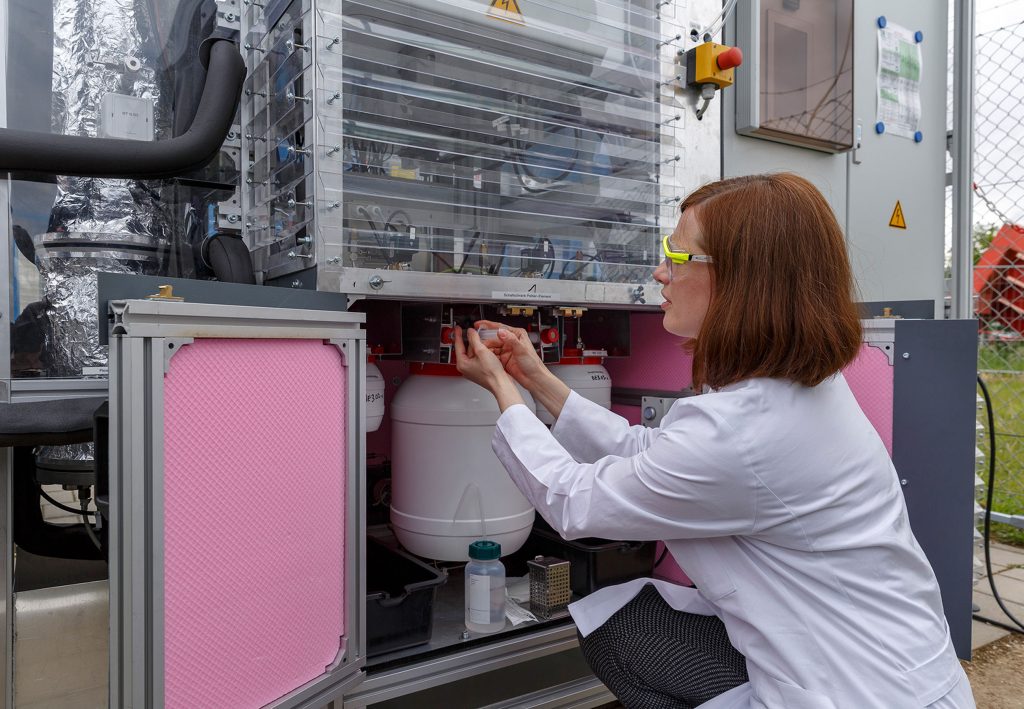
Following successful technical testing at FAU Erlangen-Nuremberg, archaea can now be inoculated for the first time and the conversion of carbon dioxide and hydrogen to methane can be tested.
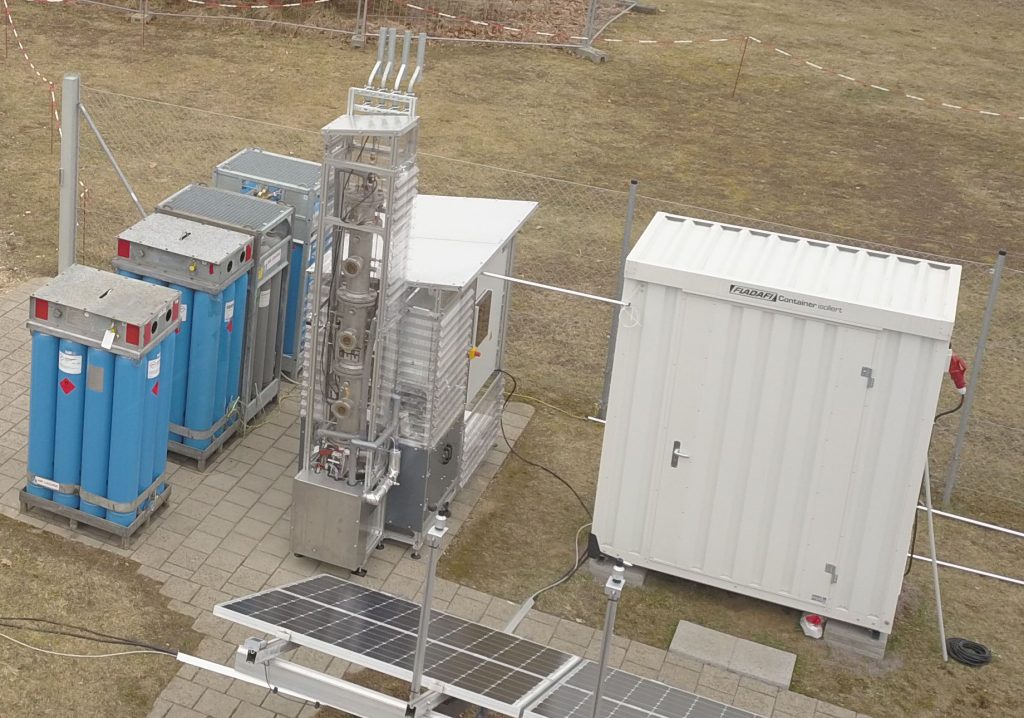
The ORBIT trickle bed reactor for biological methanation was dismantled in Nuremberg and successfully transported to its new location in Regensburg. It is now available for commissioning and further trial operation.
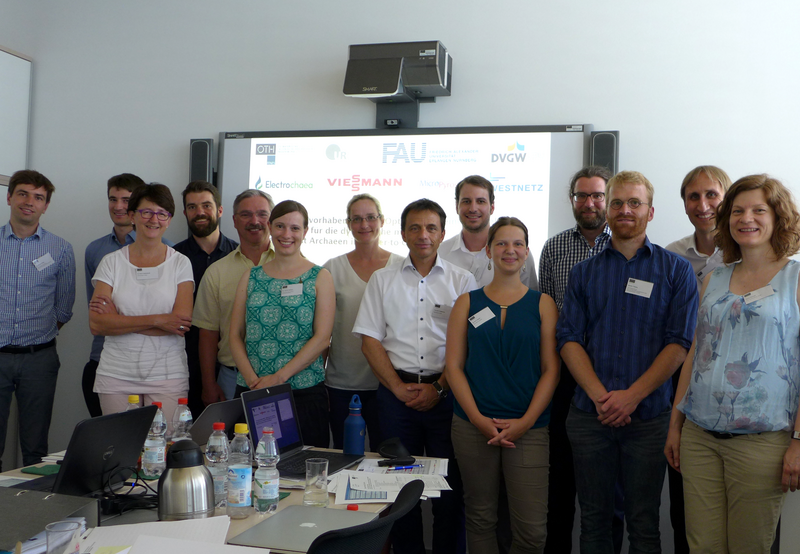
Funding for the ORBIT joint project will begin on July 1, 2017 and run for 3 years. The project, which is funded by the German Federal Ministry for Economic Affairs and Energy with 1 million euros, focuses on biological methanation in which microorganisms are used to produce "green" methane that can be fed into the grid. The project is characterized by its holistic approach to solving the issues: biologists, process engineers, energy engineers, plant engineers and users are working hand in hand.
The existing trickle bed bioreactor from the “ORBIT” project is to be expanded into a complete plant including an electrolyzer (ORBIT demo) and then be implemented in a containerized design. The comprehensive design enables the system to be easily integrated into already existing industrial processes, as the number of necessary industrial interfaces is significantly reduced. By using a container of a standard size, the system can be easily transported in the future as freight forwarders already have extensive experience with such load sizes.
In order to advance the application of trickle bed reactors, real industrial gases from different PtG sites will be tested both in microbiological studies and in a 5 Litres-scale reactor (ORBIT-Twin) operated in parallel. In close cooperation between the biological laboratory and ORBIT-Twin, it will be determined whether co-cultures or pure cultures are to be preferred regarding their performance and process stability in the different application scenarios. With the integration of ORBIT-Demo at the Pfaffenhofen wastewater treatment plant, a potential application area will be tested under real conditions.
For the successful rollout of the technology, various barriers for stakeholders are to be removed. By identifying and publishing suitable locations for the integration of PtG plants with biological methanation, stakeholders such as project planners and municipalities can gain a quick and free overview of their options. By operating ORBIT-Demo, the project partners gain important experience in the field of biological methanation, allowing Stadtwerke Pfaffenhofen a. d. Ilm to take on a leading role in the municipal sector. For the future implementation of the plant in a size relevant for industrial use, a theoretical upscale (ORBIT-Industry) is already being carried out. For this, all the knowledge gained in the course of the project will further be incorporated.
“ORBIT II” addresses various areas of innovation in the field of biological methanation. The consortium combines expertise from research as well as application and benefits from the many years of experience of the scientific partners in their respective disciplines (methanogenic microorganisms, biological methanation, electrical and systems engineering aspects) as well as the extensive practical experience of the industrial partners. The industrial advisory board complements the project in order to bring the technology to application as quickly as possible.